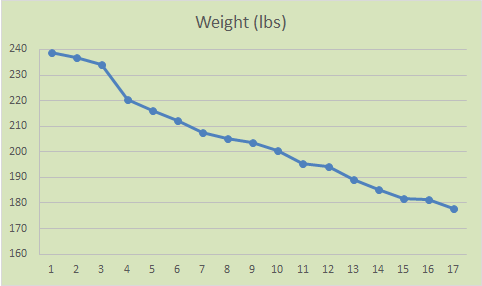Thanks for that clarification and I think you got the nail on the head as far as how newbies like me hear CICO. Just starting keto now and determined to do it right as I’ve failed in the past. And because of this I worry too much about the details such as total calories intake. It’s hard to come out of this mentality… I’m glad I joined this forum and saw this thread as yesterday was officially a successful me to say for me as data as consuming less than 20g of carbs and meeting macros, but I was discouraged at the end of the day when I realized I ate over 2000 calories (most coming from fat) and I know I only burned about 1900 calories for missing my workouts and sitting at a desk all day. I almost through in the towel, but now determined to continue Today! So thank you and Robert_Johnson.
Just a little background, I’ve lost 20 pounds since september by weekly water fasting 2-3 days with eating larger the following 2-3days, than fasting again in such pattern with weekly high intensity workouts 4 times a week. I tracked my calories through it all. I haven’t fasted as committedly since thanksgiving and looking to get back on track now and I see how many fast-ers enjoy doing kept at the same time. I was hoping that with keto and fasting I can get back on track better. Any advice is very welcomed!


